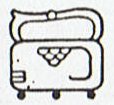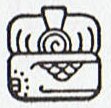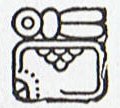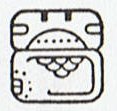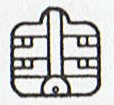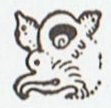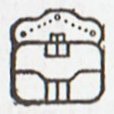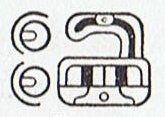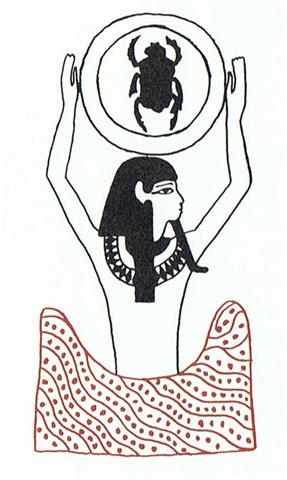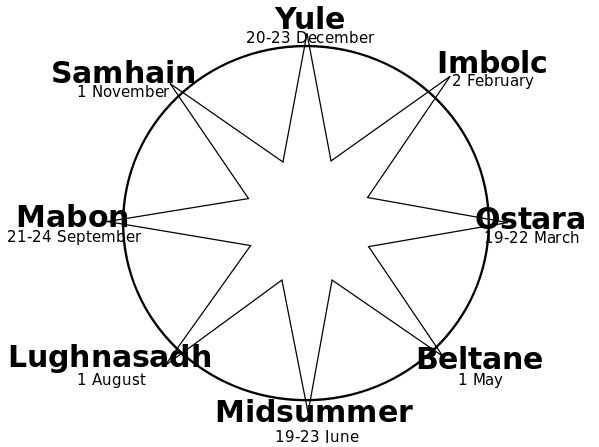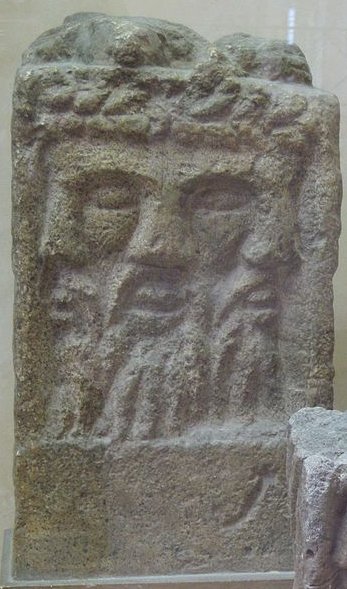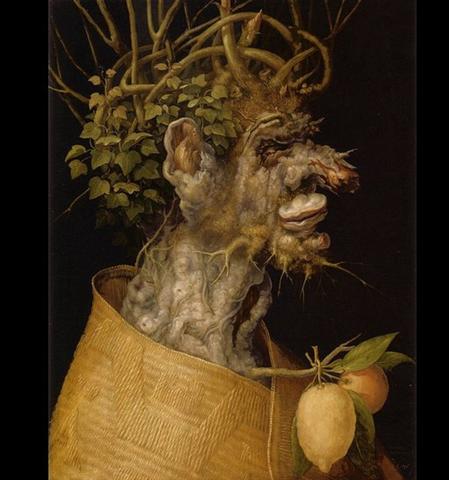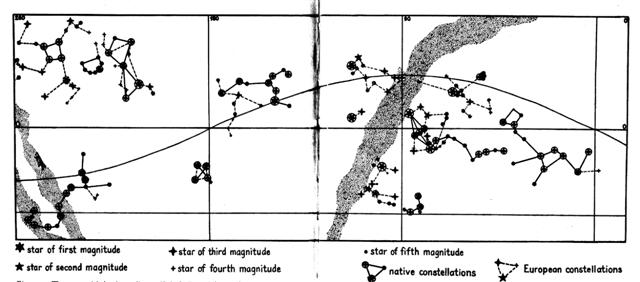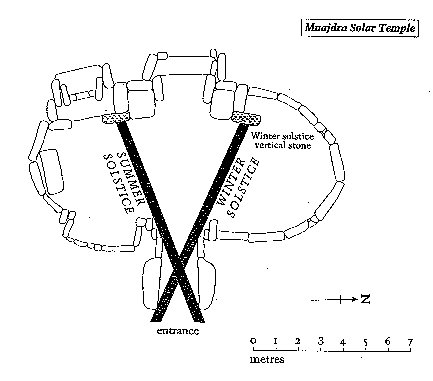266. In Polynesian myth Land was drawn up from the bottom of the Sea by means of an enchanted fish-hook, e.g.: ... Boastful Maui behaved as if it were a very ordinary sort of fish-hook, and flashed it carelessly. Then he asked his brothers for some bait. But they were sulking, and had no wish to help him. They said he could not have any of their bait. So Maui atamai doubled his fist and struck his nose a blow, and smeared the hook with blood, and threw it overboard. 'Be quiet now,' he told his brothers. 'If you hear me talking to myself don't say a word, or you will make my line break.' And as he paid out the line he intoned this karakia, that calls on the north-east and south-east winds: Blow gently, whakarua, / blow gently, mawake, / my line let it pull straight, / my line let it pull strong. // My line it is pulled, / it has caught, / it has come. // The land is gained, / the land is in the hand, / the land long waited for, / the boasting of Maui, / his great land / for which he went to sea, / his boasting, it is caught. // A spell for the drawing up of the world. The brothers had no idea what Maui was up to now, as he paid out his line. Down, down it sank, and when it was at the bottom Maui lifted it slightly, and it caught on something which at once pulled very hard. Maui pulled also, and hauled in a little of his line. The canoe heeled over, and was shipping water fast. 'Let it go!' cried the frightened brothers, but Maui answered with the words that are now a proverb: 'What Maui has got in his hand he cannot throw away.' 'Let go?' he cried. 'What did I come for but to catch fish?' And he went on hauling in his line, the canoe kept taking water, and his brothers kept bailing frantically, but Maui would not let go. Now Maui's hook had caught in the barge-boards of the house of Tonganui, who lived at the bottom of that part of the sea and whose name means Great South; for it was as far to the south that the brothers had paddled from their home. And Maui knew what it was that he had caught, and while he hauled at his line he was chanting the spell that goes: O Tonganui / why do you hold so stubbornly there below? // The power of Muri's jawbone is at work on you, / you are coming, / you are caught now, / you are coming up, / appear, appear. // Shake yourself, / grandson of Tangaroa the little. The fish came near the surface then, so that Maui's line was slack for a moment, and he shouted to it not to get tangled. But then the fish plunged down again, all the way to the bottom. And Maui had to strain, and haul away again. And at the height of all this excitement his belt worked loose, and his maro fell off and he had to kick it from his feet. He had to do the rest with nothing on. The brothers of Maui sat trembling in the middle of the canoe, fearing for their lives. For now the water was frothing and heaving, and great hot bubbles were coming up, and steam, and Maui was chanting the incantation called Hiki, which makes heavy weights light. At length there appeared beside them the gable and thatched roof of the house of Tonganui, and not only the house, but a huge piece of the land attached to it. The brothers wailed, and beat their heads, as they saw that Maui had fished up land, Te Ika a Maui, the fish of Maui. And there were houses on it, and fires burning, and people going about their daily tasks. Then Maui hitched his line round one of the paddles laid under a pair of thwarts, and picked up his maro, and put it on again ... On Easter Island the month of June was named He Maro: ... The names of the month were: Tua haro, Tehetu'upú, Tarahao, Vaitu nui, Vaitu potu, He Maro, He Anakena, Hora iti, Hora nui, Tagaroa uri, Ko Ruti, Ko Koró ...
... Presented the drink to quaff, he refused it, saying that he was ill; but urged to taste it from the tip of his finger, he did so and was immediately overpowered by its magic. He lifted the bowl and was drunk. He sent for Quetzalpetlatl, his sister, who dwelt on the Mountain Nonoalco. She came, and her brother gave her the bowl, so that she too was drunk. And with all reason forgotten, the two that night neither said prayers nor went to the bath, but sank asleep together on the floor. And in the morning Quetzalcoatl said, in shame, 'I have sinned; the stain of my name cannot be erased. I am not fit to rule this people. Let them build a habitation for me deep under the ground; let them bury my bright treasures in the earth; let them throw the glowing gold and shining stones into the Precious Waters where I take my nightly bath. And all this was done. The king remained four days in his underground tomb, and when he came forth he wept and told his people that the time had come for his departure to the Red Land, the Dark Land, the Land of Fire ...
In the same way as when the High Priest of Jupiter Julius was running around naked in the month of birth (February) so Maui had to abandon his loin cloth (maro) at the birth of new Land - presumably in order to play the role of a newborn. ... 'Now while I'm away,' he said, 'show some common sense and don't be impatient. Don't eat food until I come back, and whatever you do don't start cutting up the fish until I have found a priest and made an offering to the gods, and completed all the necessary rites. When I get back it will be all right to cut him up, and we'll share him out equally then. What we cannot take with us will keep until we come back for it.' Maui then returned to their village. But as soon as his back was turned his brothers did the very things that he had told them not to. They began to eat food, which was a sacrilege [turou] because no portion had yet been offered to the gods. And they started to scale the fish and cut bits off it. When they did this, Maui had not yet reached the sacred place and the presence of the gods. Had he done so, all the male and female deities would have been appeased by the promise of portions of the fish, and Tangaroa would have been content. As it was they were angry, and they caused the fish of Maui to writhe and lash about like any other fish. That is the reason why this land, Aotearoa, is now so rough and mountainous and much of it so unuseful to man. Had the brothers done as Maui told them it would have lain smooth and flat, an example to the world of what good land should be. But as soon as the sun rose above the horizon the writhing fish of Maui became solid underfoot, and could not be smoothed out again. This act of Maui's, that gave our people the land on which we live, was an event next in greatness to the separation of the Sky and Earth ... He dropped his maro in the middle (at the height) of the month of Maro, which fact probably was alluding to the apex of high summer (at midsummer) and the desired rain-drops would soon follow.
The word maro also means dry ... To the early Aryans the desert, the maru, which approached their abodes on the west, must have presented itself primarily under the aspect of 'dry, arid, sterile, barren', a sense still retained in the Polynesian maro. Hence the sense of 'to wither, to die', is a secondary one. Again, those ancient Aryans called the deity of the wind the Marut; and if that word, as it probably does, refers itself to the root or stem mŗi, the primary sense of that word was certainly not 'to die', for the winds are not necessarily 'killing', but they are 'drying', and that is probably the original sense of their name ... and the name He Maro for June could have been chosen because here was Canopus (Agastya) who drank up all the waters in the whole Ocean - in the picture below personified by a Crocodile in contrast to the Earth Turtle safely high up on dry land (terra firma):
... The Pythagoreans make Phaeton fall into Eridanus, burning part of its water, and glowing still at the time when the Argonauts passed by. Ovid stated that since the fall the Nile hides its sources. Rigveda 9.73.3 says that the Great Varuna has hidden the ocean. The Mahabharata tells in its own style why the 'heavenly Ganga' had to be brought down. At the end of the Golden Age (Krita Yuga) a class of Asura who had fought against the 'gods' hid themselves in the ocean where the gods could not reach them, and planned to overthrow the government. So the gods implored Agastya (Canopus, alpha Carinae = Eridu) for help. The great Rishi did as he was bidden, drank up the water of the ocean, and thus laid bare the enemies, who were then slain by the gods. But now, there was no ocean anymore! Implored by the gods to fill the sea again, the Holy One replied: 'That water in sooth hath been digested by me. Some other expedient, therefore, must be thought of by you, if ye desire to make endeavour to fill the ocean ... February was Te-Hetu'u-Pu, the month where there was a hole (Pu) for the star (Hetu'u) of birth.
From Yule to Imbolc there were 7 + 34 = 41 days and from there to Beltane there were 121 - 41 = 80 days (in harmony with how Gregory XIII had preferred day number 80 rather than day 79): ... Ecclesiastically, the equinox is reckoned to be on 21 March (even though the equinox occurs, astronomically speaking, on 20 March in most years) ...
From Beltane to Lughnasadh
there were 213 (August 1) - 121 (May 1) = 92 days, and Beltane (121) + half 92 = 121 + 46 = 167 days, evidently corresponding to 6h. ... Gronw Pebyr, who figures as the lord of Penllyn - 'Lord of the Lake' - which was also the title of Tegid Voel, Cerridwen's husband, is really Llew's twin and tanist ... Gronw reigns during the second half of the year, after Llew's sacrificial murder; and the weary stag whom he kills and flays outside Llew's castle stands for Llew himself (a 'stag of seven fights') ... ... But the time of his predestined defeat by the dark brother, Tezcatlipoca, was ever approaching, and, knowing perfectly the rhythm of his own destiny, Quetzalcoatl would make no move to stay it. Tezcatlipoca, therefore, said to his attendants, 'We shall give him a drink to dull his reason and show him his own face in a mirror; then, surely, he will be lost'. And he said to the servants of the good king, 'Go tell your master that I have come to show him his own flesh!' But when the message was brought to Quetzalcoatl, the aging monarch said, 'What does he call my own flesh? Go and ask!' And when the other was admitted to his presence: 'What is this, my flesh, that you would show me?' Tezcatlipoca answered, 'My Lord and Priest, look now at your flesh; know yourself; see yourself as you are seen by others!' And he presented the mirror. Whereupon, seeing his own face in that mirror, Quetzalcoatl immediately cried out, 'How is it possible that my subjects should look upon me without fright? Well might they flee from before me. For how can a man remain among them when he is filled as I am with foul sores, his old face wrinkled and of an aspect so loathsome? I shall be seen no more, I shall no longer terrify my people' ...
The stars 80 right ascension days later, corresponding to around 80 * 71 - 1842 = 3838 BC, had glided away from 6h to 11h:
Imbolc (33) + 80 + 46 = 159, or rather 34 (counting from December 31) + 80 + 46 = 160 (June 9) = the day immediately before the month when the Oak was burned alive: ... The month, which takes its name from Juppiter the oak-god, begins on June 10th and ends of July 7th. Midway comes St. John's Day, June 24th, the day on which the oak-king was sacrificially burned alive. The Celtic year was divided into two halves with the second half beginning in July, apparently after a seven-day wake, or funeral feast, in the oak-king's honour ...
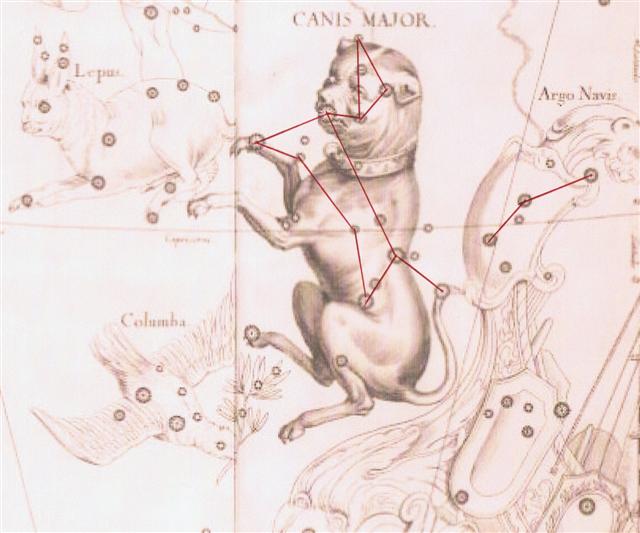 Furud (ζ Canis Majoris) was at the right hind paw and close to the left wing of Columba according to Hevelius.
... Then I become aware of ... a presence - a faint, ghostly glimmering, like moonglow, that has appeared on the solstice stone. I don't know how long it lasts, a second or two only I would guess, but while it is there it seems less like a projection - which I know it to be - than something immanent within the stone itself. And it seems to function as a herald for it fades almost as soon as it has appeared and in its place the full effect snaps on - instantaneously. It wasn't there, and then it's there. As Chris had described, the effect does curiously resemble a poleaxe, or a flag on a pole, and consists of a 'shaft', narrow at the base but widening a little towards the top, running up the left hand side of the solstice stone, surmounted by a right-facing 'head' or 'flag'. An instant later an almond-shaped spot of light, like an eye, appears a few centimeters to the right of the 'flag' and the effect is complete. Weirdly - I do not claim it has any significance - this flag-on-a-pole symbol is the ancient Egyptian hieroglyph neter, meaning 'god', or 'a god' - and not to be understood at all in the Judaeo-Christian usage of that word but rather as a reference to one of the supernatural powers or principles that guide and balance the universe. Manifested here, in this strange Stone Age temple, it glows, as though lit by inner fire.'
... The Mnajdra Temple is located on Malta and very ancient, dating to the time before the pyramids. Marija Gimbutas: 'To sleep within the Goddess's womb was to die and to come to life anew'. In a system of reincarnation the old one must die in order to be reborn, of course. At midsummer Sun comes to a standstill, and this must therefore be an occasion when the 'flame of life' had to be transported into a new body ... |
||||||||||||||||||||||||||||||||||||||||||||||||||||||||||||||||||||||||||||||||||||||||||||||||||||||||||||||||||||||||||||||||||||||||||||||||||||||||||||||||||||||||||||||||||||||||||||||||||||||||||||||||||||||||||||||||

